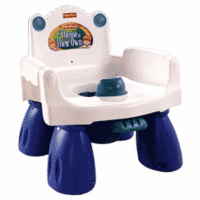 Today I'm going to cut & paste a couple of book reviews that I did on Sybermoms.com, because you can't discuss books there unless you're willing to pony up $15/yr. for an account upgrade on their self-proclaimed "bitchy, opinionated" parenting board (which I think is worth it). Just don't judge that site by whatever idiocy you read on the Main Event. That stuff changes like the weather. French Impressions: The Adventures of An American Family, by John S. Littell was a delightful, relaxing read that reminded me of Shirley Jackson's Life Among the Savages. It's the memoirs of the author's mother, which he added to and edited, of life in France in 1950 with a student husband and two young sons - a four year old and a constantly crying (from midnight-5am every night!) and very spirited 15 month old.
Today I'm going to cut & paste a couple of book reviews that I did on Sybermoms.com, because you can't discuss books there unless you're willing to pony up $15/yr. for an account upgrade on their self-proclaimed "bitchy, opinionated" parenting board (which I think is worth it). Just don't judge that site by whatever idiocy you read on the Main Event. That stuff changes like the weather. French Impressions: The Adventures of An American Family, by John S. Littell was a delightful, relaxing read that reminded me of Shirley Jackson's Life Among the Savages. It's the memoirs of the author's mother, which he added to and edited, of life in France in 1950 with a student husband and two young sons - a four year old and a constantly crying (from midnight-5am every night!) and very spirited 15 month old. Part of the book's appeal is in how different things were back then - four year olds could go down the street a couple blocks to play with their friends without their parents worrying about it. I'm not sure the world is so much more dangerous (in some places, anyway) than it was in 1950, but most parents today wouldn't dream of letting their preschoolers roam like John Littell did.
The story about him peeing off the side of the Eiffel Tower was pretty darn funny, as were many, many other vignettes in the book. And now I want to go eat crusty French baguettes filled with dark chocolate.
 Confessions of a Slacker Mom, by Muffy Mead-Ferro is a book that was featured along with Judith Warner's Perfect Madness in a February issue of Newsweek devoted to the stresses of motherhood.
Confessions of a Slacker Mom, by Muffy Mead-Ferro is a book that was featured along with Judith Warner's Perfect Madness in a February issue of Newsweek devoted to the stresses of motherhood. I wanted to like this book, despite having read a damning review by a fellow Sybermom, but it sucked even more than she said it did. Can any nitwit out there get a book of smarmy, self-righteous essays published? I'm seriously missing the boat, if so.
It's the blanket statements that got to me, especially combined with Mead-Ferro's vapid writing. And like Naomi, I actually agree with many of the "slacker mom" ideals, like natural consequences and plenty of unstructured playtime. I agree that the huge amounts of toys that many parents buy are excessive. But here's a representative passage for you to ponder for yourselves:
But I don't feel sorry about the fact that I don't do my share of buying, assembling, picking up, sorting, or fixing toys.
I'm not simply trying to avoid a mess in my kids' rooms, though. I'm also thinking about the mess I don't want in their heads. I'm pretty sure if my children were continually supplied with every latest toy, that they would quickly develop a dependence on always having something new. Where the only good toy is a new toy.
I can only imagine the consequences if they never grow out of that. Actually, I don't think I have to imagine them. I think I've seen them for myself.
I know more than one gal with the expensive habit of always having to have new clothes. I'm distantly related to someone who thinks his new car is no good after a year. And I also know of an unhappy person who intermittently feels he needs a new spouse. Perhaps, just perhaps, this all started when they were little and had an endless incoming stream of new toys.
Can you say facile over-simplification? If I'd bought this book I'd compost it. Now I'm just going to write scathing reviews and urge everyone to read French Impressions or Life Among the Savages if they want to read about the "Good Old Days". They're both more interesting, colorful, and complex, and you can probably do without a heavy helping of sanctimony. Get yourself a loaf of pain au chocolat, take the afternoon off, and be a real slacker with your kids instead.






